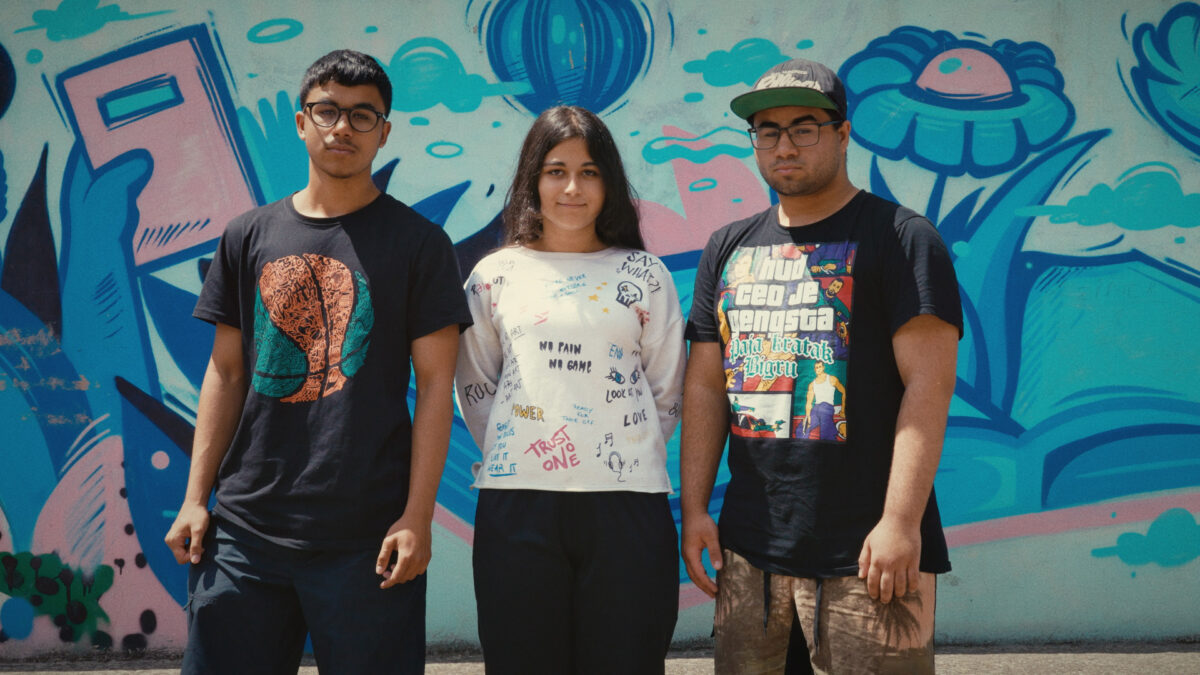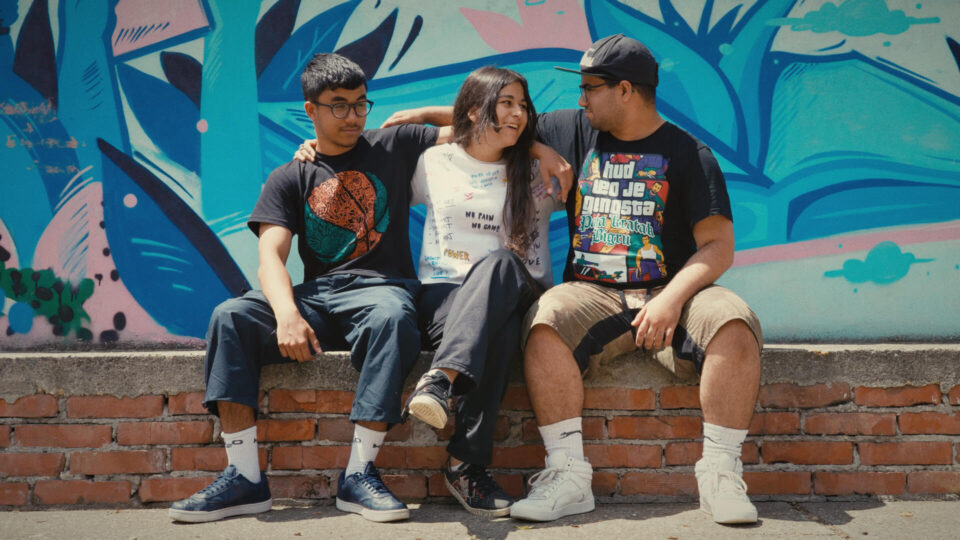The Music Art Project charity organisation implements a free program of group learning of music through youth choirs and orchestras at the “Branko Pešić” elementary school

The music lessons held as part of the program encourage children to find their voice or an instrument that will help them express themselves. The goal is to increase the social inclusion of children living in difficult conditions. Aleksandar, Filip and Valentina Trajković are members of the youth percussion ensemble and choir. They live in a Roma settlement in Zemun, and joined the program in 2019., when they moved to Belgrade with their family. The Trajković family have had numerous performances with Music of Hope. Since October 2022, Valentina has been part of the choir in the play “Children” based on the novel by Milena Marković, which is performed on the big stage of the National Theatre. Aleksandar, Filip, and Valentina perceive the percussion ensemble as their own band for which they write melodies and lyrics in cooperation with their professor of composition and arranging, Biljana Simenović.
Their dynamics form an understandable system. Filip is somewhat serious and protective of his family, while Aleksandar is warm and open. Their mother left them a couple of years ago and the family had a hard time taking it. This puts Valentina in the position of the only female person in the family. “I am replacing my mother because there is no woman in the house. There is no other woman’s hand, and it is difficult for me because I am alone, and it would be nice to have someone to talk to and help, who would understand me more about some things”. Aleksandar helps with cooking, while Filip tends to assist dad more. Their father, Nenad Trajković, suffers from diabetes and is unable to perform heavy physical work. He hopes that Filip and Aleksandar will find a good job and help the family get back on their feet. Filip enrolled in electrical engineering school last year and takes a lot of responsibility for himself: “Right now I’m looking at myself and my family, I want them to start something better. We need to get out of that house, it’s not ours. That’s why I want to finish school, to work.”
The Trajković family has not resolved the housing issue. As beneficiaries of social assistance, although they met all the required criteria for the allocation of social apartments by the city of Belgrade, due to administrative slowness, their request did not even come to be considered. With a voice in their voice, they talk about how there are many apartments on the outskirts of the city that are empty for the same reason, while many families are crying out for the necessary accommodation. They currently live in a Roma settlement in Zemun in a house from which they could be evicted at any moment. They live in poverty and in constant fear of ending up on the streets. The fact is that these social and economic problems that cry out for an adequate economic solution indicate that poverty often results in a vicious circle from which it is difficult to get out. On top of that, the constant moving before coming to Belgrade made it difficult for them to progress in school, so Filip and Aleksandar are now struggling to catch up. Lack of access to education, health care and basic resources has limited the potential of these young people, stopping them from achieving their dreams. Namely, Roma poverty and physical isolation in settlements, bureaucratic procedures for school enrolment and discrimination by educational authorities contribute to their low representation in schools. In Serbia, only 64% of Roma children finish primary school, while only 28% enrol in secondary school (Barriers to the Education of Roma in Europe, 2002).
In order to help them get out of the circle of poverty, community support is often the one who plays a key role in creating changes in the lives of socially disadvantaged families. Through greater financial investment in additional education programs and the provision of basic support to families, a direct impact is made on their lives. One such program is Music of Hope, which aims to reduce the dropout of children from the education system. Education is key to change, and successful social cohesion and represents one of the basic human rights. Orchestras and choirs of Hope are therefore designed as an inclusive community, which provides all children with a sense of security, giving them the knowledge and strength to step out of poverty.
We talk with the Trajković about how they manage music lessons and how music has influenced them. In addition to the percussion program, Valentina also sings. She is currently attending seventh grade at the “Branko Pešić” elementary school, and she wants to enrol in a hospitality and tourism school. She describes music lessons as soothing, and the classroom we are in as a “comfort zone”. She says how she held back her feelings before starting the classes: “The music had an effect on me, I was quiet and kept everything inside, and now I know how to open up.”
Aleksandar also experienced a change: “Before I entered school and heard about MAP (Music Art Project), I was almost depressed because we had a lot of problems at home. But it has improved over time, I am better with people, my brother and sister. I didn’t have much contact with them before, and now we have a good relationship. We played in a band together; it brought us closer. I wanted to be a rapper from a young age, and I didn’t know what to do or how to start, and since I’ve been in MAP, I understand it more and more”.
Filip was not interested in music before, he started playing because of his brother and sister, and now he is together with them in the percussion program, their band: “When we play, we are in some new galaxy. You look at the people around you, you smile. You can feel everything when someone in the band is playing and if something is not right, we recognize by the sound that there is a problem”.
Music has a lot of influence on their relationships with other people, which Filip confirms: “It’s different in electrical engineering school and if I hadn’t been in music, I don’t know how I would have coped.” I wouldn’t talk to anyone, hardly anyone will come with you to say goodbye, you have to take action first. MAP helped me in that because I saw that there are good people who do not look at who and what I am but accept me. There is always that one negative person in society, but I have seen that there are also positive ones”. Aleksandar and Valentina confirm and add: “Let’s say there are 70% negative and 30% positive people and we have to find that 30%.”
